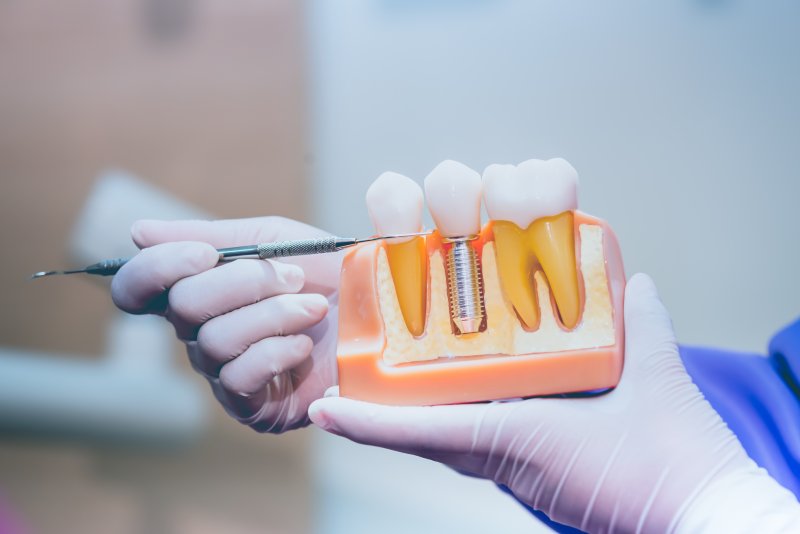
Are you struggling with bruxism? This is the medical term that is used to describe repetitive teeth clenching and/or grinding. There are several reasons why this can occur, but the most common ones include stress, misalignment, and missing teeth. If you are missing teeth, you may be worried about how your bruxism can affect your ability to get dental implants. Continue reading to learn more about the relationship between bruxism and dental implants.
How Can Bruxism Affect Dental Implants?
When you get dental implants, they are placed directly into the jawbone by your dentist. To be successful, they need to go through a process known as “osseointegration.” This is when the titanium implant and jawbone fuse together to create a strong foundation for your crown. However, if you have bruxism, there is a risk that repetitive grinding and clenching can get in the way of this process. Ultimately, this increases your risk of experiencing a dental implant failure.
Can You Get Dental Implants If You Have Bruxism?
If you are dealing with bruxism, it is important that you and your dentist work this out before you have your implants placed. As long as the health and strength of your gums and jawbone have not been compromised, you will likely still make a good candidate for dental implants once you take steps to treat the condition ahead of time.
How Is Bruxism Treated?
There are a few different ways that bruxism can be treated. Here are the most common:
- Stress/Anxiety Management: For many people, the root of their bruxism is the fact that they are feeling anxious or stressed. Ultimately, this can be taken out on the teeth. By learning strategies to manage these feelings in different ways, bruxism can be improved.
- Mouth Guards and Splints: These are custom-made by your dentist and are worn to keep the teeth separated. This way, the damage is avoided when clenching or grinding takes place. They can be constructed out of acrylic or soft materials and fit over the upper or lower teeth.
- Dental Correction: In severe cases, your dentist may need to reshape some of the chewing surfaces of the teeth or use crowns to repair previous damage.
Just because you have bruxism doesn’t necessarily mean that you can’t replace your missing teeth with dental implants. By discussing concerns with your dentist and addressing the issue, you will be on your way to restoring the appearance and function of your smile.
About the Author
Dr. Steven Kendrick is an experienced dentist who has been working in the field for more than two decades. He earned his Doctor of Dental Surgery degree from the Oklahoma University College of Dentistry. Currently, he is a proud member of the American Dental Association, Oklahoma Dental Association, Oklahoma Dental Society, and the Academy of General Dentistry. For more information or to schedule an appointment at his office in Midwest City, visit his website or call (405) 732-0431.
